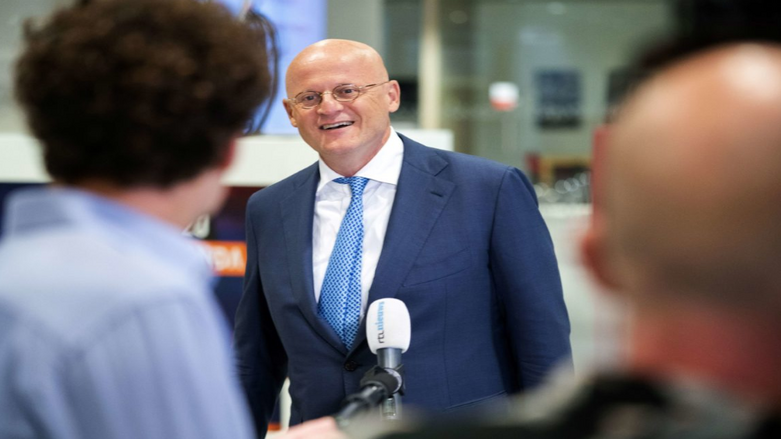Dutch authorities in contact with Syrian Kurds on repatriation efforts: Minister

ERBIL (Kurdistan 24) – In a letter to Dutch lawmakers, Justice and Security Minister Ferd Grapperhaus confirmed on Wednesday that the Dutch authorities made contact with the Syrian Kurdish-led authorities in August to explore if they are willing to help repatriate five Dutch women with alleged affiliations to the Islamic State (ISIS).
In the letter, Grapperhaus wrote that the Dutch authorities made contact with the Syrian Kurds (the Autonomous Administration of North and East Syria) with the aim of "exploring whether there is an initial willingness on their part to facilitate the repatriation of at least the five suspects and their children in question."
"It is estimated that several discussions will have to be held in order to obtain more certainty about this," he wrote.
In a ruling in July, a Dutch court gave the government of the Netherlands a tight deadline of three months to repatriate five female nationals who have alleged ties to ISIS.
However, the government said it is difficult to repatriate them on such short notice. The Dutch national broadcaster NOS also reports that the Dutch court might decide to shelve the case if the women are not repatriated.
Minister Grapperhaus also said they had had discussions with three European partners to gain insights on their repatriation efforts.
From these discussions, he learned that repatriation operations can take months or "sometimes even a year" due to logistical preparations and difficult negotiations with the Syrian Kurds.
Also, the volatile security situation in Syria and the required COVID-19 measures have complicated repatriations of foreign ISIS nationals.
Grapperhaus pointed out that the security situation in northeast Syria remains unstable, with attacks by ISIS south of Hasakah and clashes between Turkish-backed groups and Kurdish forces.
Several European countries have shown reluctance to repatriate citizens who are suspected ISIS members due to the security risks involved as well as domestic opposition.
In June, a Dutch national Ilham B. with alleged ties to ISIS, her two underage children, and another orphaned minor were repatriated from Syria to the Netherlands after a court decision.
Read More: Dutch government confirms return of Dutch woman, children from Syria
Most of Syria's al-Hol camp residents are Iraqi and Syrian nationals, but the camp also includes many foreign families thought to have ISIS links. According to the United Nations, there are about 62,000 people still in the camp.
On Wednesday, the UN said it had developed an integrated approach designed to support states with third country returnees. This was organized at a sideline event at the UN assembly in New York held by the Iraqi and Dutch governments, UNICEF, and the UN Office of Counter-Terrorism.
